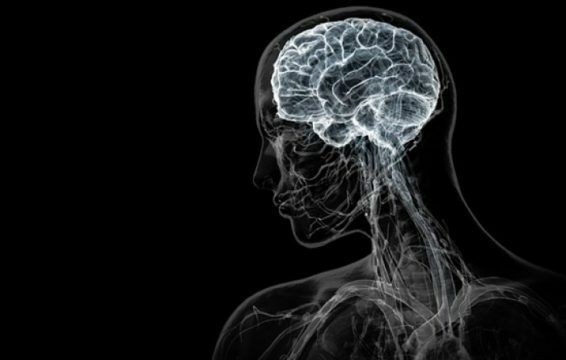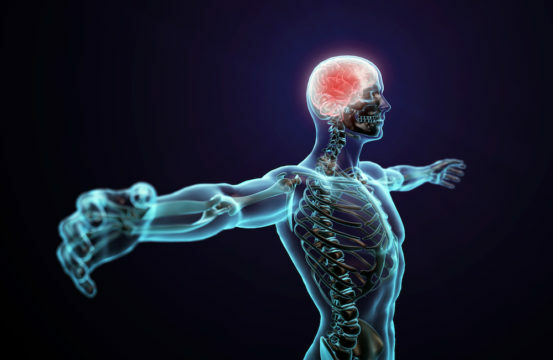If in the human body all the physiological processes proceed normally, the balance of the thyroid-pituitary gland will also be harmonious and justified: with sufficient production of thyroid hormones, in particular, T4, the pituitary gland produces a small amount of thyroid-stimulating hormone. With such a disease as thyrotoxicosis, which is characterized by hyperthyroidism, the pituitary gland generally rests, and the development of thyroid-stimulating hormone does not occur.
But sometimes it also happens that thyroid hormone T4 is produced in a normal amount, but the pituitary gland produces much less thyroid-stimulating hormone than is necessary at this level of T4.
Cause of decreased production of TTG

The causes of these disorders can generally be divided into two groups:
- pathological,
- physiological.
A low level of TSH at a normal T4 level may be a sign that endocrinological pathologies occur in the human body. It can be:
- hypothyroidism caused by diseases of the pituitary or brain,
- thyrotoxicosis with subclinical course.
Physiological causes include natural processes:
- advanced age,
- pregnancy.
Separately it is necessary to mention such factor as low level TTG at some serious diseases of somatic nature, also decrease in TSH can be caused by medicamental therapy.
When a person reaches the advanced age, all processes, including metabolic processes, slow down in the aging organism. The body gradually gets used to the new "schedule" of all organs, including the glands of internal secretion, and corrects the production of the thyroid hormone T4.

When it comes to hypothyroidism associated with changes taking place in the hypothalamic-pituitary system, this is called central hypothyroidism. This applies to neoplasms in the pituitary gland or the brain( both malignant and benign), and the decay of the tissues of these organs( necrosis).These pathological changes interfere with the physiological circulation in the thyroid gland. But we should also take into account the fact that at the onset of the disease, a normal T4 level can be observed. And as the situation aggravates, the tumor grows, there will be an increasing deficiency of the thyroid hormone TSH, and the textbook hypothyroidism with all the inherent symptoms will develop.
But to cause a decrease in the level of TSH can and pathology directly in the thyroid gland. With the development of such diseases as thyroid adenoma or toxic goiter, the thyroid gland begins to work autonomously, without the involvement of the pituitary gland. Formed in adenoma or goiter, toxic cells produce thyroid hormones on their own, the pituitary does not need to be "pinched".The value of T4 is within the normal range, the brain perceives this as a signal to reduce the production of TTG by the pituitary gland. As a consequence, normal healthy cells of the thyroid gland come out of the process of hormone production, since there is no stimulation from the pituitary.
Something similar happens and with some autoimmune diseases, in particular, autoimmune thyroiditis. The human immune system begins to produce antibodies and send them to attack the thyroid gland. As a result of these actions, the thyroid gland is losing, under the onslaught of antibodies, its cells are killed, while the thyroid hormone T4 is released from them. The pituitary body at this time is indifferent, the development of TSH will be below normal. But in this case there will be a progressive clinic, the symptoms of thyrotoxicosis will develop rapidly, which gives rise to a motivated call to a doctor. With subclinical thyrotoxicosis, a person who is objectively sick, subjectively does not feel any pathological changes, he has a normal state of health and he does not consult doctors.
Severe diseases and medication use

Severe, so-called somatic diseases - stroke and heart attack - can cause a decreased TSH at a normal T4 level. Also to this list are:
- severe injuries, when in the body all processes are reconstructed for the fastest restoration of the physiological norm;
- fasting, anorexia, cachexia( this is especially necessary to keep in mind young girls who are thoughtlessly seeking to lose weight by any means to be like fashion models);
- surgical interventions, including organ transplant;
- strong nervous shocks, stressful conditions.
A few words about the thyroid hormones T3 and T4.Slightly less than half of T4 is converted to T3 as a result of separation from the molecule of the iodine atom( triple and quadruple in the abbreviated names of hormones - this is the number of iodine atoms in the molecule).T4, converted to T3, takes part in the metabolism. In severe diseases, often an iodine atom can not separate from the molecule( this phenomenon is called a deiodination disorder).The level of T4 is normal, therefore, the pituitary gland "slows down" the production of thyrotropic hormone TSH.The pathology is found only by the results of analyzes in which the T3 level is unreasonably low.
Another situation in which TSH remains low at the normal level of T4 is the difficulty of getting thyroid hormones from the thyroid gland into the organs and tissues of the human body. But this is not the fault of the thyroid gland, and for the treatment of this pathology, a thorough examination should be conducted to determine the cause.
When considering tests with a reduced or low thyroid-stimulating hormone, it is necessary to take into account whether the patient takes any medications, since the list of drugs that affect the production of TSH is extensive, there are even seemingly innocuous aspirin and furosemide.

It may also be the case that patients who are prescribed hormone replacement therapy carelessly refer to mandatory scheduled visits to the doctor and examinations, and continue to take medication in the same dose - which can already be overstated while improving the condition. In this case, the T4 level may even be slightly overestimated, with an underestimated level of TSH.
Pregnancy
In future mothers the whole body should work with the needs of not only the mother's body, but also the fetal organism. For the normal development of the future child, in order for the embryo to normally form all systems and organs, thyroid hormones are needed. He himself does not work them out yet, therefore his mother must try for him: the mother organism must make its thyroid gland increase the production of T4 by half.
In this case, the pituitary gland does not tear, because nature has foreseen everything, and for pregnant women a "lifebuoy" has been created - the so-called pregnancy hormone, hCG( human chorionic gonadotropin).As a matter of fact it is an analogue of a thyrotropic hormone TTG, developed by a pituitary body, in the organism of a pregnant woman the function of its development is taken by the placenta. This substance is especially developed in pregnant women in the first trimester, when the foundations of organs and systems are laid.
The phenomenon is absolutely normal and natural, but nevertheless it is necessary to be screened and donated blood to determine the level of the thyroid hormone so that in the case of hypothyroidism develop the disease at the very beginning and start treatment on time.
Symptoms of
Symptoms with low TSH and normal T4 are deeply hidden, since, firstly, minor disorders are considered to be the norm, and in subclinical flow, pronounced symptoms are absent as such, in contrast to, for example, thyrotoxicosis in the Graves' disease, where we havea characteristic facial expression, skin color and other clinical signs.

The fact is that the thyroid-stimulating hormone produced by the pituitary gland is designed to stimulate only the thyroid gland; for the rest of the body the lowered TSH level is not affected in any way.
However, it is possible to "catch" certain characteristic symptoms of thyrotoxicosis with careful examination and long-term follow-up. These are:
- heart palpitations( tachycardia);
- trembling hands( tremor), and this symptom may be barely noticeable;
- lability of the nervous system, increased excitability, irritability, a tendency to hysterical reactions.
As external signs of the disease are almost absent, and a blood test with a good health will not be enough for a few people, the diagnosis is often made even when the symptomatology acquires a pronounced clinical character.
For successful diagnosis, laboratory tests are needed, as well as examinations using hardware methods( for example, ultrasound), if necessary - a biopsy to determine the nature of the lesion. At the same time, a pregnancy test and a list of medications that a person takes or has taken recently are mandatory.
Treatment and prevention of
If a person has a low TSH at T4, you first need to find out the cause of this deviation( and whether it is a deviation), and after establishing the etiology, you already determine the treatment regimen. In the case of formations in the body of the thyroid gland, appropriate surgical treatment is performed( the part of the gland is removed or it is excised completely - this is determined after the examination) or radiotherapy is used.

Prevention includes adequate iodine content in food products( primarily seafood) and avoidance of stressful situations, and in general - a healthy lifestyle and attentive attitude to one's health.



